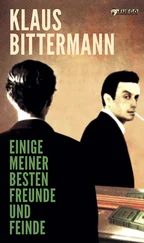“My White God.”
He shook the snow out. She scooped up some more and threw it at him. He didn’t laugh; he was surprised and alarmed. She brushed the snow off his eyebrows and licked it off his ears. She was laughing, though she felt desperate rather than merry. She didn’t know what made her do this.
“Dr. Hen -shawe,” Patrick hissed at her. The tender poetic voice he used for rhapsodizing about her could entirely disappear, could change to remonstrance, exasperation, with no steps at all between.
“Dr. Henshawe will hear you!”
“Dr. Henshawe says you are an honorable young man,” Rose said dreamily. “I think she’s in love with you.” It was true; Dr. Henshawe had said that. And it was true that he was. He couldn’t bear the way Rose was talking. She blew at the snow in his hair. “Why don’t you go in and deflower her? I’m sure she’s a virgin. That’s her window. Why don’t you?” She rubbed his hair, then slipped her hand inside his overcoat and rubbed the front of his pants. “You’re hard!” she said triumphantly. “Oh, Patrick! You’ve got a hard-on for Dr. Henshawe!” She had never said anything like this before, never come near behaving like this.
“Shut up!” said Patrick, tormented. But she couldn’t. She raised her head and in a loud whisper pretended to call toward an upstairs window, “Dr. Henshawe! Come and see what Patrick’s got for you!” Her bullying hand went for his fly.
To stop her, to keep her quiet, Patrick had to struggle with her. He got a hand over her mouth, with the other hand beat her away from his zipper. The big loose sleeves of his overcoat beat at her like floppy wings. As soon as he started to fight she was relieved — that was what she wanted from him, some sort of action. But she had to keep resisting, until he really proved himself stronger. She was afraid he might not be able to.
But he was. He forced her down, down, to her knees, face down in the snow. He pulled her arms back and rubbed her face in the snow. Then he let her go, and almost spoiled it.
“Are you all right? Are you? I’m sorry. Rose?”
She staggered up and shoved her snowy face into his. He backed off.
“Kiss me! Kiss the snow! I love you!”
“Do you?” he said plaintively, and brushed the snow from a corner of her mouth and kissed her, with understandable bewilderment. “ Do you?”
Then the light came on, flooding them and the trampled snow, and Dr. Henshawe was calling over their heads.
“Rose! Rose!”
She called in a patient, encouraging voice, as if Rose was lost in a fog nearby, and needed directing home.
“DO YOU LOVE HIM, Rose?” said Dr. Henshawe. “No, think about it. Do you?” Her voice was full of doubt and seriousness. Rose took a deep breath and answered as if filled with calm emotion, “Yes, I do.”
“Well, then.”
In the middle of the night Rose woke up and ate chocolate bars. She craved sweets. Often in class or in the middle of a movie she started thinking about fudge cupcakes, brownies, some kind of cake Dr. Henshawe bought at the European Bakery; it was filled with dollops of rich bitter chocolate that ran out on the plate. Whenever she tried to think about herself and Patrick, whenever she made up her mind to decide what she really felt, these cravings intervened.
She was putting on weight, and had developed a nest of pimples between her eyebrows.
Her bedroom was cold, being over the garage, with windows on three sides. Otherwise it was pleasant. Over the bed hung framed photographs of Greek skies and ruins, taken by Dr. Henshawe herself on her Mediterranean trip.
She was writing an essay on Yeats’s plays. In one of the plays a young bride is lured away by the fairies from her sensible unbearable marriage.
“Come away, O human child…” Rose read, and her eyes filled up with tears for herself, as if she was that shy elusive virgin, too fine for the bewildered peasants who have entrapped her. In actual fact she was the peasant, shocking high-minded Patrick, but he did not look for escape.
She took down one of those Greek photographs and defaced the wallpaper, writing the start of a poem which had come to her while she ate chocolate bars in bed and the wind from Gibbons Park banged at the garage walls.
Heedless in my dark womb
I bear a madman’s child…
She never wrote any more if it, and wondered sometimes if she had meant headless. She never tried to rub it out, either.
PATRICK SHARED AN apartment with two other graduate students. He lived plainly, did not own a car or belong to a fraternity. His clothes had an ordinary academic shabbiness. His friends were the sons of teachers and ministers. He said his father had all but disowned him for becoming an intellectual. He said he would never go into business.
They came back to the apartment in the early afternoon when they knew both the other students would be out. The apartment was cold. They undressed quickly and got into Patrick’s bed. Now was the time. They clung together, shivering and giggling. Rose was doing the giggling. She felt a need to be continually playful. She was terrified that they would not manage it, that there was a great humiliation in store, a great exposure of their poor deceits and stratagems. But the deceits and stratagems were only hers. Patrick was never a fraud; he managed, in spite of gigantic embarrassment, apologies; he passed through some amazed pantings and flounderings, to peace. Rose was no help, presenting instead of an honest passivity much twisting and fluttering eagerness, unpracticed counterfeit of passion. She was pleased when it was accomplished; she did not have to counterfeit that. They had done what others did, they had done what lovers did. She thought of celebration. What occurred to her was something delicious to eat, a sundae at Boomers, apple pie with hot cinnamon sauce. She was not at all prepared for Patrick’s idea, which was to stay where they were and try again.
When pleasure presented itself, the fifth or sixth time they were together, she was thrown out of gear entirely, her passionate carrying-on was silenced.
Patrick said, “What’s the matter?”
“Nothing!” Rose said, turning herself radiant and attentive once more. But she kept forgetting, the new developments interfered, and she had finally to give in to that struggle, more or less ignoring Patrick. When she could take note of him again she overwhelmed him with gratitude; she was really grateful now, and she wanted to be forgiven, though she could not say so, for all her pretended gratitude, her patronizing, her doubts.
Why should she doubt so much, she thought, lying comfortably in the bed while Patrick went to make some instant coffee. Might it not be possible, to feel as she pretended? If this sexual surprise was possible, wasn’t anything? Patrick was not much help; his chivalry and self-abasement, next door to his scoldings, did discourage her. But wasn’t the real fault hers? Her conviction that anyone who could fall in love with her must be hopelessly lacking, must finally be revealed as a fool? So she took note of anything that was foolish about Patrick, even though she thought she was looking for things that were masterful, admirable. At this moment, in his bed, in his room, surrounded by his books and clothes, his shoe brushes and typewriter, some tacked-up cartoons — she sat up in bed to look at them, and they really were quite funny, he must allow things to be funny when she was not here — she could see him as a likable, intelligent, even humorous person; no hero; no fool. Perhaps they could be ordinary. If only, when he came back in, he would not start thanking and fondling and worshipping her. She didn’t like worship, really; it was only the idea of it she liked. On the other hand, she didn’t like it when he started to correct and criticize her. There was much he planned to change.
Читать дальше












